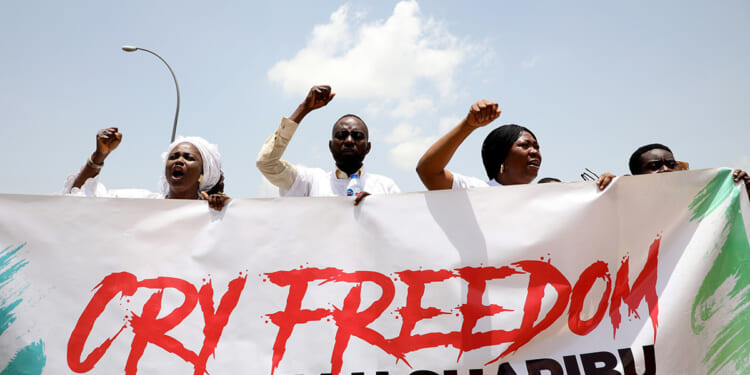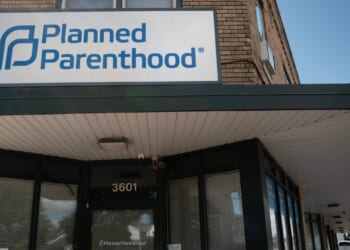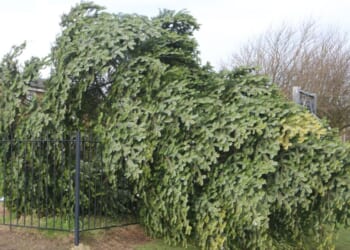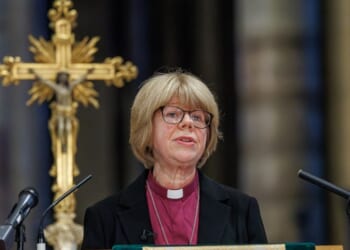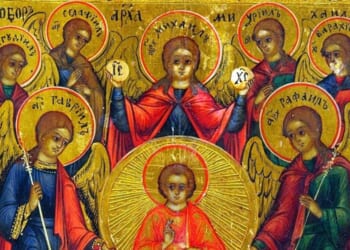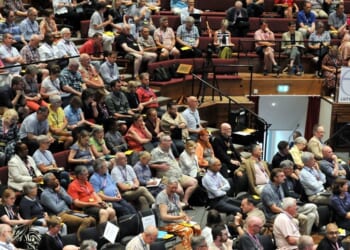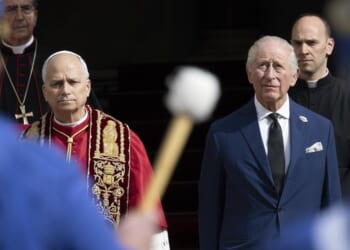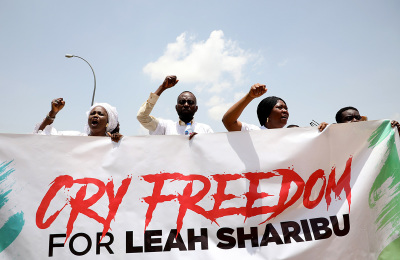
Later this month, my daughter Veronica turns 14. As she and I debate whether to celebrate with just family or her school friends, my thoughts turn to another girl who was 14 when her world shattered. Her name is Leah Sharibu, and she has now spent more than seven years in captivity, held by the Boko Haram since February 19, 2018.
Leah was kidnapped along with 109 other schoolgirls from their school in Dapchi, Nigeria. While most girls were returned, five were killed. Her captors kept Leah because she refused to renounce her Christian faith, threatening to hold her as a slave for life.
The contrast between my daughter’s life and Leah’s could not be starker. While Veronica debates birthday celebrations in safety and freedom, Leah has endured unspeakable horrors. As U.S Commission on International Religious Freedom Commissioners Maureen Ferguson and Dr. Asif Mahmood noted in a recent commentary, there are indications that Leah is still alive, though she most certainly has suffered unimaginable abuse. As for her family, “Leah’s parents pray daily and light candles on her birthday each year in the hope that she will be reunited with them someday.”
As a mother, I cannot fathom the anguish of Leah’s parents. They sent their daughter to school — a normal, hopeful act — and have spent more than 2,600 days not knowing what suffering she endures or if they will ever embrace her again. Every birthday, every holiday, every ordinary day carries the crushing weight of her absence.
Leah’s story is tragically not unique. Thousands of Christians have been killed for their faith in Nigeria. In April, more than 200 Christians were massacred in attacks on villages in Plateau and Benue states during Lent and Easter, some as they worshiped. According to Open Doors, “Nigeria is the country with the largest number of faith-related kidnappings in the world.” During the group’s 2024 Watch List reporting period, at least 3,300 people were kidnapped in the country. “Women who are abducted face death, slavery (sexual and physical) and forced marriage.”
This systematic violence has created a crisis that demands international attention and action. For too long, the persecution of Nigerian Christians existed in the shadows, acknowledged by human rights advocates but largely ignored by those with the power to intervene meaningfully.
That is why President Trump’s recent actions represent a powerful turning point. On October 31, 2025, President Trump announced the redesignation of Nigeria as a “Country of Particular Concern” under the International Religious Freedom Act. And on November 5, he declared: “Christianity is facing an existential threat in Nigeria. Thousands of Christians are being killed. Radical Islamists are responsible for this mass slaughter.” He concluded powerfully: “The United States cannot stand by while such atrocities are happening in Nigeria, and numerous other Countries. We stand ready, willing, and able to save our Great Christian population around the World!”
This designation reverses the Biden administration’s 2021 removal of Nigeria from the list and reinstates the designation Trump had issued in December 2020 during his first term. The label identifies nations where governments engage in or tolerate severe violations of religious freedom, potentially leading to targeted U.S. sanctions, aid restrictions, and diplomatic pressure.
Dede Laugesen, president and CEO of Save the Persecuted Christians, has expressed gratitude for President Trump’s commitment, noting that her organization has been advocating for Nigerian Christians since 2018. She emphasized: “Christian hostages, like Leah Sharibu, must be rescued.”
Because we are called to be our brother’s — and sister’s — keeper, we cannot allow partisan divisions to blind us to suffering or prevent us from acknowledging when leaders take courageous stands for the voiceless. Whatever our political differences may be on other matters, we must unite in gratitude when any president becomes a leading voice for persecuted Christians like Leah Sharibu. Our faith demands more than political support, however. It demands prayer — fervent, persistent, sacrificial prayer. The situation in Nigeria and other hot spots of persecution is dire and the need is urgent.
Every parent, especially mothers who understand the fierce love we bear for our children, can make the persecuted Christians of Nigeria a daily intention. When you tuck your children safely into bed, pray for Leah and the thousands still held captive. When you celebrate birthdays, remember the mothers in Nigeria who mark another year of their children’s absence or death. When you worry about the ordinary trials of raising teenagers, offer those worries up for parents who face the extraordinary trial of their child’s abduction and enslavement.
And pray that one day soon, Leah Sharibu will be reunited with her family and friends — free to worship as she chooses, free to pursue her dreams, free to celebrate birthdays with those who love her. That is the future she deserves. That is the future we must pray and work for with all our strength.
Andrea Picciotti-Bayer is the Executive Director of the Conscience Project.

